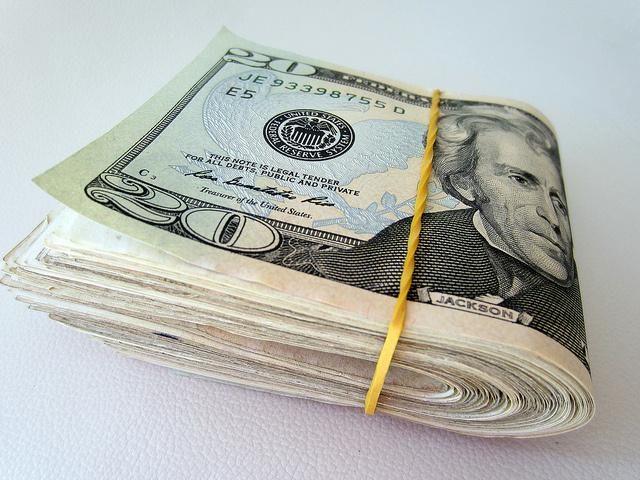
Online retailer Newegg has developed a reputation for fighting hard against the kind of non-practicing patent holders often called "patent trolls." Now a long fight against one such entity, called SFA Systems, has reached a conclusion, and the US Court of Appeals for the Federal Circuit denied (PDF) Newegg's request to have its legal fees paid.
SFA Systems, formerly known as Triton IP, was one of a network of patent-holding companies controlled by Erich Spangenberg. SFA's patent was originally acquired from a Minnesota computer company called Clear With Computers, and SFA later acquired a second related patent from the US Patent and Trademark Office. Under Spangenberg's guidance, SFA sued dozens of retailers for having websites that allegedly constituted "sales force automation systems" as described in two patents, numbered 6,067,525 and 7,941,341.
Those stores nearly all reached settlement agreements for the SFA patents, but Newegg didn't. Rather than see the case through trial, SFA dismissed its case before trial in 2013 and promised Newegg a covenant not to sue.
Newegg moved for costs and $1.2 million in legal fees. The East Texas district court found that Newegg was the prevailing party and awarded costs, but it declined to give it attorneys' fees, finding that despite SFA's vast array of lawsuits, it was not an extraordinary case—even under new case law making it easier to collect fees.
"[T]he fact that SFA has filed several lawsuits against numerous defendants is insufficient to render this case exceptional," wrote US District Judge Leonard Davis. "In many cases, patent infringement is widespread and the patent owner may be forced to revert to widespread litigation against several infringing parties to enforce its intellectual property rights.”
Newegg appealed. But in a ruling published on Friday, a panel of three Federal Circuit judges agreed with the East Texas court's finding. The district court didn't "abuse its discretion" in finding that SFA's positions in court did not stand out.
Newegg also argued that SFA filed suit "for the improper purpose of obtaining a nuisance value settlement," well below the cost of litigation, then dismissed its suit against Newegg when it realized the company wouldn't settle.
But the appeals panel ruled that Newegg failed to "make a record supporting its characterization of SFA’s improper motivations." Three basic facts about SFA's strategy aren't in dispute: the patent-holding company sued numerous defendants, settled for less than the cost of litigation, then dismissed against Newegg.
SFA lawyers argued they dismissed their lawsuit against Newegg once the court scheduled its potentially higher-value trial against Amazon on the same day, and they wanted to focus on that case.
"The mere existence of these other suits does not mandate negative inferences about the merits or purpose of this suit," wrote Circuit Judge Kathleen O'Malley on behalf of the panel.
Newegg Chief Legal Officer Lee Cheng told Ars that he believes his company's appeal will be useful even if they lose, because it will help better define the rules for fee shifting. If those rules remain "unfairly tilted in favor of plaintiffs... we increase the odds that the Supreme Court or Congress will step in."
"We did not seek fees because we believed that the path would be easy," Cheng told Ars in an e-mail exchange about Friday's decision. "We did so because it is important for someone to stand up to say that enough is enough. Maybe what we are doing will cause EDTX [East Texas] judges to undertake a more thoughtful and thorough analysis before rejecting Section 285 [exceptional case] fee motions from now on."
reader comments
61